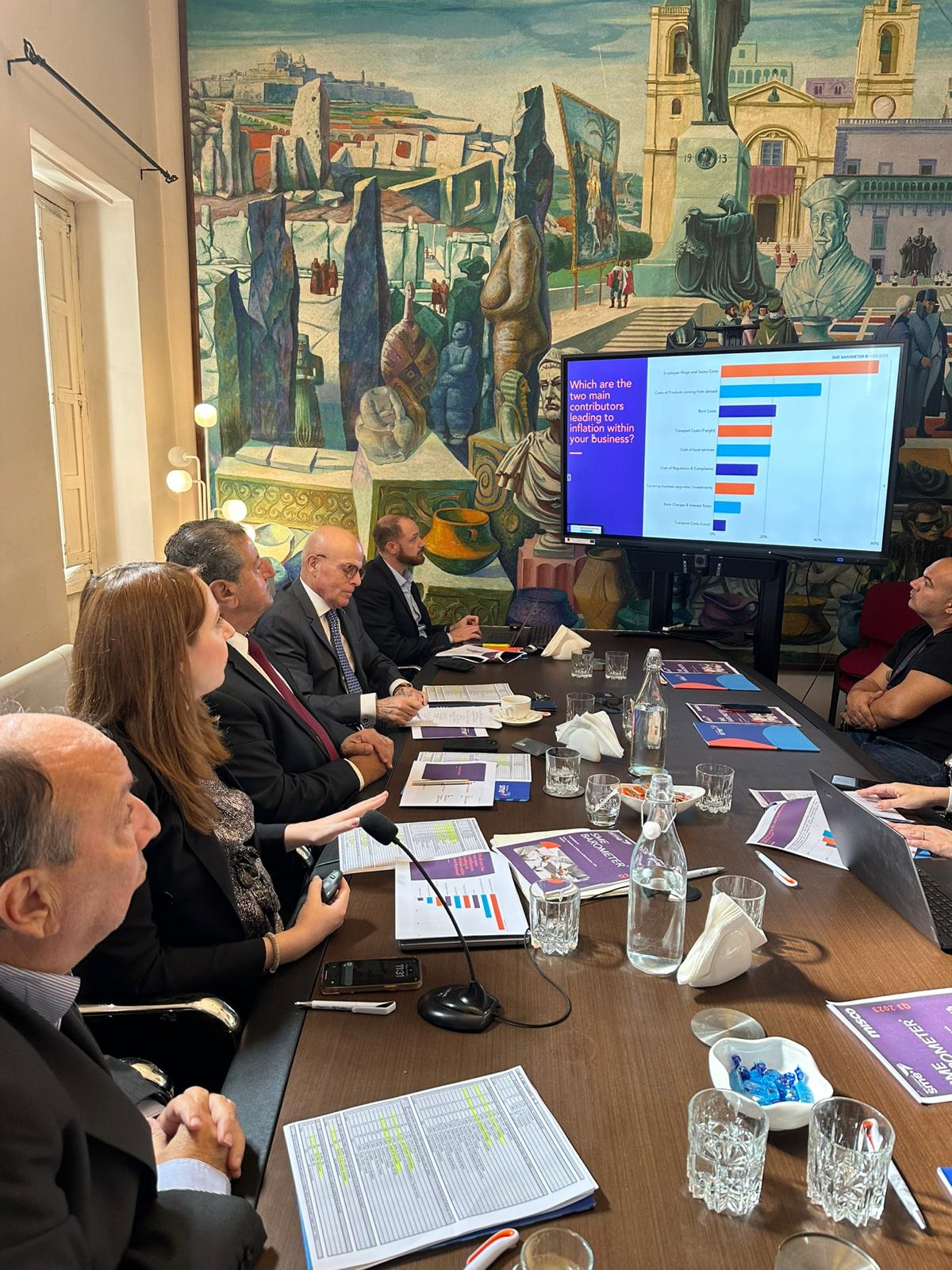It is clear that remedial action is required imminently

The Malta Chamber of SMEs earlier today published the results of the SME Barometer (Q3 2023) Survey conducted amongst a total of 423 businesses (50.35% – Micro, 33.80% – Small, 13.95% – Medium and 1.9% – Large.
When asked what are the topmost important issues concerning their businesses, the data reveals the major concerns and challenges faced by businesses in Malta are categorised by the number of employees. In general, and across the board, the most pressing issues across all Business sizes are Employee Shortage (41.10%), Increase in Inflation (30.2%) and Unfair Competition (21.04%).
The primary contributors to business concerns when it comes to the national situation, across all sectors continues to be the lack of good governance (37.10%) and the increase in inflation (32.86%). These challenges have remained consistent from the previous quarter (Q2 2023), affirming their sustained importance and concern.
The Q3 SME Barometer introduced new choices, in particular on the perceived level of corruption (37.35%) and the nation’s overpopulation (27.4%) and concerns on the quality of life (14.89%). These new choices also scored high, which continues to underpin the survey results with the evolving issues highlighted during this quarter.
Abigail Agius Mamo said that ‘The businesses overall sentiment continues to show that Businesses are feeling uncomfortable with the direction they are seeing Malta heading towards (79.90%). This shows that businesses in general are not happy with the direction the country is heading to and a need for change in direction is imminent’.
The data shows that overall businesses’ sentiment continued to shift when compared with Q2, 2023. The change is a significant one, being it of 16% from Q2 to Q3.
Businesses, regardless of their size, are still facing considerable uncertainty when it comes to making investment decisions for the next year (54% – Unsure).
Finally, businesses were asked what the main contributors are leading to inflation, in general, businesses believe that the main factors leading to inflation are mainly due to Employee wage and salary costs (56%). This includes the cost of recruitment, employee turnover and actual salaries.
Misco Director Mr. Lawrence Zammit noted that Employee wage and salary costs cannot be disregarded, and any foreseen increases need to be complimented with an increase in productivity, this is to avoid wage inflation and ensure sustainability.
Mr. Paul Abela said that the country is at cross-roads and it is clear that a change in economic direction is imminently needed. He hopes that next Mondays’ budget will tackle these issues and address them directly.
The SME Barometer survey is a collaborative effort between the SME Chamber and MISCO.
Download Presentation
Download Compiled Report












